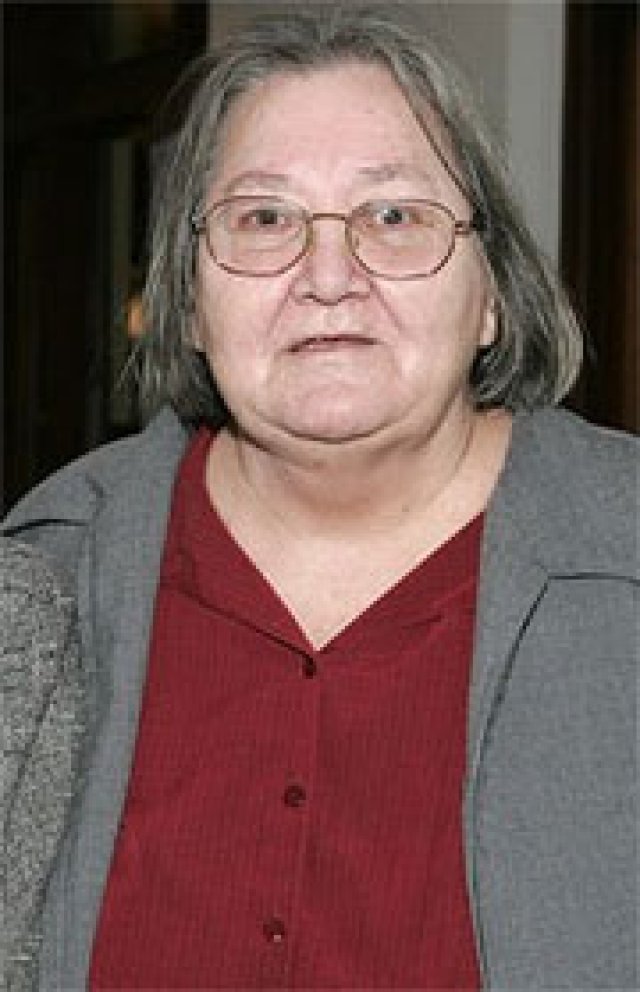
Nine Aboriginal people have sued Herald Sun columnist Andrew Bolt in Melbourne over four articles he wrote in 2009.
The court has heard the articles questioned the motives of “light” or “white-skinned” people who identified as Aboriginal.
The people taking the action under the Racial Vilification Act include activist Pat Eatock, former ATSIC chairperson Geoff Clark, artist Bindi Cole, academic Larissa Behrendt, author Anita Heiss, health worker Leeanne Enoch, native title expert Graham Atkinson, academic Wayne Atkinson and lawyer Mark McMillan.
In Bolt’s 2009 article, “White is the new Black”, he said identifying as Indigenous was “divisive, feeding a new movement to stress pointless or even invented racial differences we once swore to overcome. What happened to wanting us all to become colour blind?”
He accused those mentioned in articles of being “Aboriginal bureaucrats”, “professional Aborigines” and argued that they referred to themselves as Aboriginal despite “not looking Aboriginal”. Bolt further implied they did this for personal gain, at the expense of “darker skinned” Aboriginal people.
Ron Merkel, QC, told the court that Bolt relied on outdated notions of racial identity, dating to the eugenics movement of the 1930s the March 29 Age reported.
Defending herself in The Age, Eatock said: “From when I was eight, and I started skipping school because of the taunting until I was 14, when I left school, [my Aboriginal heritage] became a concrete aspect of my view of myself.”
From the age of 14, she said, she publicly identified as Aboriginal
According to The Age: “Her time in the workforce was marked, she said, by short-term jobs and long periods of ill health and joblessness. 'I would say in fact a reasonable person looking at [my CV] would say it's a failed career, six years' employment in 34 years or something. That's a lot of unemployment. Where's my mansion? Where's my car? I live in a one-bedroom flat, Department of Housing. That's not a significant achievement.’ “
According to The Age: “Larissa Behrendt Behrendt said she was stunned that Bolt referred to her as a “a professional Aborigine “, referred to her as ‘mein liebchen’, highlighted an unknown German background and that a photo was used with the column where she had dyed blond hair.”
This is not new territory for Bolt, who claimed in a February 2004 Herald Sun article: “The stolen generations was a dangerous myth.”
The Stolen Generations (also known as Stolen children) is a term used to describe children of Aboriginal and Torres Strait Islander descent who were removed from their families by Australian government agencies and church missions. The removals continued until the 1970s.
Bolt’s articles also ignore the real causes of Aboriginal disadvantage — the dispossession of their lands.
Despite common racist myths, there is no extra benefit — financial or social incentives — to be gained from identifying as Aboriginal. In reality, federal government funding for Aboriginal programs are greatly under funded in comparison with non-Aboriginal programs.
The only serious way to end disadvantage for Aboriginal people is for the government to redress the historical injustices: pay the rent, pay the stolen wages and compensate Indigenous people for unfair policies of genocide and assimilation since colonisation.
[For more information visit stolengenerationsvictoria.org.au.]
Comments
Anonymous replied on Permalink
Anonymous replied on Permalink
Anonymous replied on Permalink
Anonymous replied on Permalink
Anonymous replied on Permalink
tonyiltis@hotma... replied on Permalink
tonyiltis@hotma... replied on Permalink
Anonymous replied on Permalink